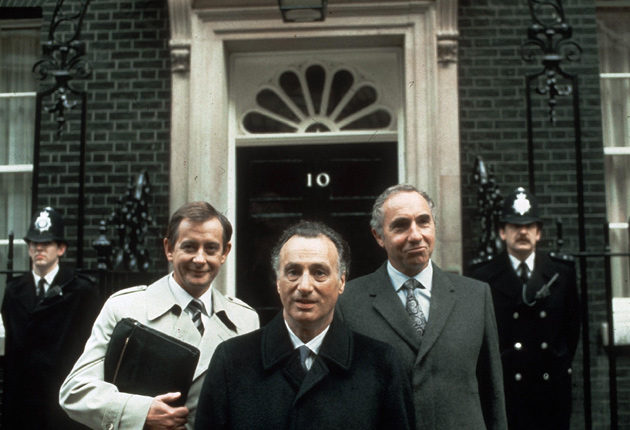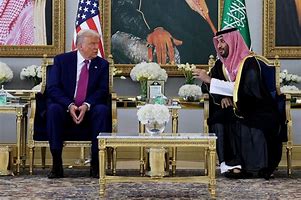The UK’s decision under Prime Minister Keir Starmer to recognise a Palestinian state has drawn sharply conflicting views. Supporters present it as a moral and political step towards peace; critics see it as a symbolic gesture driven by domestic party pressures rather than diplomacy. Most assessments converge on a sobering point: little will change on the ground. Pessimists, who clearly outnumber optimists, argue that recognition will not bring relief to Gazans, will not help secure the release of Israeli hostages held by Hamas, and will not push either side closer to negotiations. Nor, in the current climate of maximalism on both sides, is it likely to revive the moribund two-state solution or lead to Israelis and Palestinians living side by side in peace. Adel Darwish writes
Many observers see Prime Minister Keir Starmer’s decision to recognise a Palestinian state as a misguided step, driven less by principle than by pressure from his own back-benchers, the hard left, and Islamist voices within his party. By framing the move as a response to Israel’s actions — even suggesting recognition as a form of ‘punishment’ when he first floated the idea two months ago — Starmer has turned one of the world’s most sensitive international issues into a political gesture for domestic consumption.
Having reported on the Middle East for decades, I can say with regret that nothing in this gesture will alter the grim realities on the ground. The extreme right-wing settlers entrenched in the occupied West Bank will react in their customary reckless manner, fuelling further instability. Hamas will present it as vindication, declaring that terrorism pays. Ordinary Gazans will see no relief from their misery, and the Israeli hostages still held by Hamas will remain beyond reach. Far from advancing peace, this recognition risks deepening the conflict, because the historic causes remain unresolved and, indeed, inflamed.
The fundamental obstacle is that power on both sides is concentrated in the hands of the maximalists, not the pragmatists who dared to reach an accommodation in Oslo in 1993 between the PLO, led by Yasser Arafat, and a more liberal Israeli government led by Yitzhak Rabin, who was later shot dead by a far-right religious nationalist law student objecting to peace in 1995. The Israeli government of Benjamin Netanyahu’s coalition has no intention of entertaining the creation of a Palestinian state. At the same time, large segments of Palestinian opinion, and indeed public discourse in neighbouring countries, still cling to the demand of ‘a state from the river to the sea’ — code for erasing the Jewish presence altogether.
The so-called ‘two-state solution’ — now reduced to an empty slogan — was first enshrined in the United Nations Partition Plan of 1947. It was rejected outright by Egypt and her allies. Egypt, Israel’s most powerful neighbour, mobilised forces from the newly created Arab League — itself a British wartime creation to bolster Allied influence on the southern Mediterranean during the Second World War — with the clear aim of destroying the fledgling Jewish state.
Israel fought for survival and, against the odds, prevailed. The only Arab force to perform with any effectiveness was the Jordanian Army, then still largely officered and trained by the British since it was the empire’s Arab Legion. They held on to the West Bank and East Jerusalem.
Among Arabs and Muslims, a folkloric belief took hold that the whole of historic Mandate Palestine must be ‘liberated.’ Colonel Gamal Abdel Nasser transformed Egypt from a Mediterranean state with strong European ties into the spearhead of Pan-Arabism, with anti-Israel sentiment as the adhesive that held his project together.
In 1967, Nasser expelled the UN peacekeepers who had been stationed since the Suez War of 1956, blockaded Israeli ports, and massed his armies. His pretext was a water dispute involving Israel and Syria. The war that followed ended in another devastating defeat for the Arab side. Israel emerged in control of East Jerusalem, the West Bank, Gaza, Sinai, and the Golan Heights. Rather than move towards accommodation, the Arab League met in Khartoum and pushed by Colonel Nasser to issue the famous ‘Three No’s’: no peace, no recognition, and no negotiations with Israel.
Since then, the pattern has repeated itself. Neighbours attack; Israel defends, wins, and gains more territory. For Arabs, this reinforced the belief that Israel was an expansionist colonial project, a prophecy seemingly fulfilled by every lost war. For Israelis, each concession became a source of renewed danger.
When Israel dismantled settlements and withdrew from Gaza, the territory became a launch pad for rocket attacks by Hamas. When Israel pulled out of South Lebanon, Hezbollah filled the vacuum. Iran and its proxies — Hezbollah in Lebanon, the Houthis in Yemen — continue to stoke conflict, deepening Israeli fears of encirclement.
There is little evidence of a change in mindset on the Arab side. Even in moments when Arab leaders issue statements about peace, there is seldom a clear condemnation of Hamas’s terrorism- including 7 October 2023 massacre, one of the darkest days in the conflict. Without a fundamental shift in Arab political rhetoric, state-controlled media, and public opinion — one that convinces ordinary Israelis that coexistence is truly accepted — it will be impossible for a more flexible government to be elected by enough number of voters who believe that there is a mass of public opinion or trends on the Arab side who truly believe in co-existence with a Jewish state .
This is the background against which Starmer’s move must be judged. Recognition at this moment does not advance peace; it entrenches the deadlock. It signals to Hamas and its allies that violence and terror reap rewards. It signals to Israeli extremists that the world will move against them no matter what, bolstering their own rejectionist narrative.
The timing could not be worse. Israeli politics are dominated by Netanyahu’s right-wing coalition, which treats the very idea of a Palestinian state as an existential threat. On the Palestinian side, governance is split between the Palestinian Authority in the West Bank, whose legitimacy is fading, and Hamas in Gaza, which rules by fear and the gun. A gesture from London, or even from European capitals, cannot bridge this chasm.
Recognition, to be meaningful, must come as the product of negotiations and mutual concessions, not as a symbolic flourish to placate domestic party factions. Otherwise, it becomes another brick in the wall of mistrust, another excuse for extremists to declare victory, and another disappointment for moderates who still hope for peace.
I wish it were otherwise. I wish one could say that Britain’s recognition of Palestine will open the way to peace. But history — a history I have witnessed at close hand across wars, uprisings, and failed summits — shows the opposite. Gestures without substance deepen division. Declarations without groundwork create illusions that shatter into violence.
If Arab and Muslim leaders were to openly and consistently condemn terrorism, if they were to shift public opinion towards genuine acceptance of Israel, if Israeli politics were to bring pragmatists back to the fore — then recognition might play its part as the final seal on a negotiated settlement. But in the absence of such changes, it is, at best, an empty slogan; at worst, it is dangerously counter-productive.
–end–


